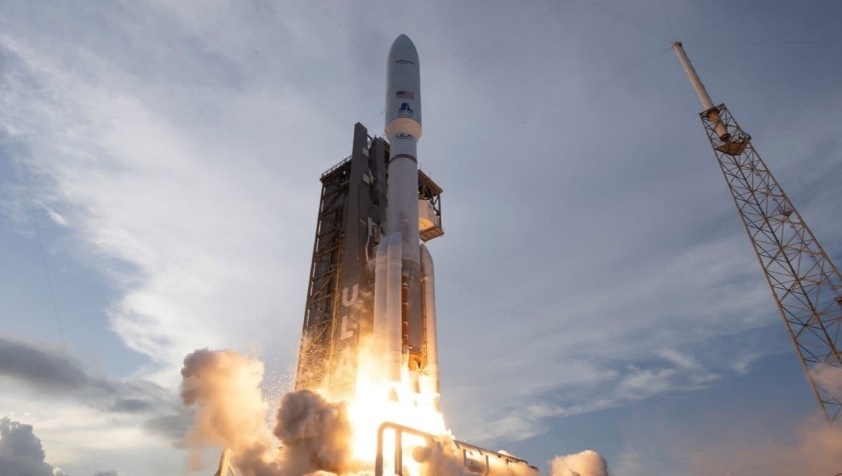Amazon Launches Its First Internet Satellites Aboard ULA Rocket To Compete Against SpaceX's Starlink
Total Views |

Amazon has launched the first batch of internet
satellites into low-Earth orbit (LEO), marking its entry into the constellation
market currently dominated by SpaceX's thousands of Starlink satellites.
The deployment of 27 Project Kuiper satellites was initially
scheduled to launch aboard United Launch Alliance's Atlas V rocket on April 10,
2025, but it was scrubbed due to inclement weather. The Kuiper-1 satellites
were finally deployed into space at an altitude of 450 kilometres on April 29,
2025, at 4:31 AM IST (or April 28, 2025, at 7:01 PM EDT) from Space Launch
Complex-41 at Cape Canaveral Space Force Station.
The Kuiper-1 launch marks the beginning of full-scale
deployment of the Kuiper constellation for Amazon in low-Earth orbit.
The
project aims to establish a network of 3,236 satellites to provide internet
satellite services, out of which ULA will deliver over 1,600 satellites into
the designated orbit.
Commenting on the successful launch, Gary Wentz, ULA
vice president of Government and Commercial Programs, stated that the launch
marked an incredible milestone in Amazon's ambitious initiative to provide fast
and reliable broadband service to unserved and underserved communities
worldwide. "We have worked diligently with the Project Kuiper team to place
this important mission to orbit and are grateful for the opportunity to
continue building upon this dynamic partnership," he said.
In late 2023, Amazon's Project Kuiper lifted off two
prototype satellites, KuiperSat-1 and KuiperSat-2, aboard an Atlas V rocket,
showcasing controlled manoeuvres in LEO. In addition to the prototypes in 2023
and another seven launches aboard Atlas V, Project Kuiper will leverage the
next-generation Vulcan rocket for 38 high-cadence, rapid-fire launches through
the world’s largest commercial launch agreement, ULA said in a press note.
Amazon has arranged more than 80 launches to deploy the
initial constellation, via Arianespace, Blue Origin, and SpaceX, alongside ULA,
with each launch contributing dozens of satellites to the network. Amazon's
satellite internet service is expected to deliver low-latency, high-speed
internet worldwide, including remote areas with difficult terrain. It will
compete with Elon Musk's Starlink to provide satellite internet connectivity to
serve both residential and business customers.

